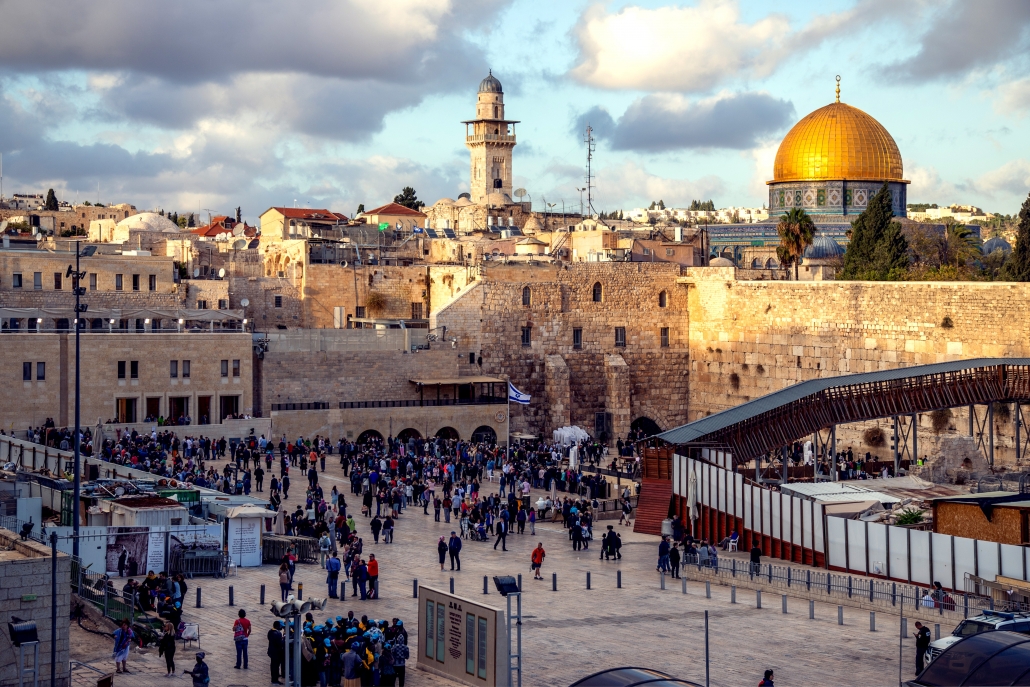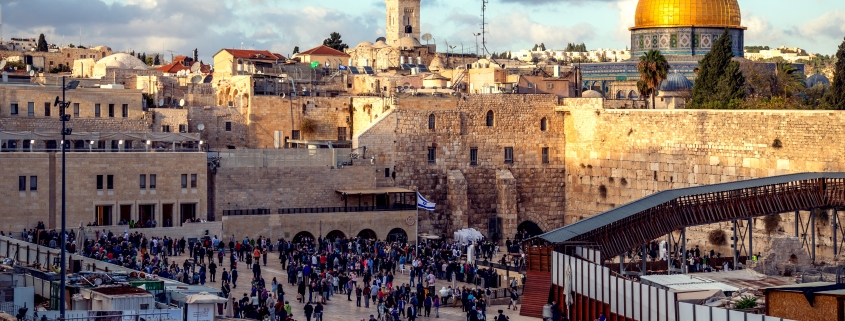Over 3 million people will travel to Israel this year. They’ll walk the beautiful beaches along the Mediterranean coastline, they’ll hike the headwaters of the Jordan in the Upper Galilee, they’ll swim in the Dead Sea, sample the produce of the Jezreel Valley, and climb up through the Judean Mountains to the city of Jerusalem. A small number of these pilgrims will suffer a strange affliction upon entering the Holy City. These otherwise stable, well-adjusted, grounded individuals will descend into a deluded and obsessive psychosis. It’s called the Jerusalem Syndrome and it’s a well-documented concern. Megalomania, hysteria, anxiety, and bizarre outbursts of all kinds are all common signs of the condition. It’s a much written about disorder and psychologists are continually discussing and debating different theories; but all seem to agree that the root of the problem is in the uniqueness of Jerusalem itself. The very air in the city seems to be charged with a religious electricity that often overwhelms the most spiritually sensitive of its visitors. I’ve toured Jerusalem twice and I can testify to the inexplicable, kinetic power of the place. But while I certainly could sense that it was an important place and that it was perhaps singular in its spiritual consequence, I did not feel particularly close to God there.

There was a time when God dwelled in power on that barren mountain. His people of promise dwelled richly in Israel and built a house in Jerusalem for the Lord to dwell in. Yahweh, the God of the universe, was to reside with His people. His presence filled Solomon’s Temple. To make a pilgrimage to Jerusalem three thousand years ago was to draw near to the very presence of God. But this is not true today. Both Solomon’s temple and Herod’s have been destroyed, Jesus’ death on Calvary rent the veil in two, His resurrection made possible man’s reconciliation with God, and His ascension heralded the coming of God’s Holy Spirit to dwell in the hearts of all who believe. To be near to God today, no one need travel anywhere. Your Mount Moriah might be your grandmother’s living room, your Garden of Gethsemane might be your back woods, your Jordan River might be your church’s tub, and your Holy of Holies might very well be your bedroom closet. The holiest places on earth for each of us are not the places where God interacted with Abraham, Moses, David, and Paul; but rather the places where God interacted with you. As we anticipate the solemn remembrances and the cheerful celebrations associated with Passion Week, let us not attempt to live, worship, and experience Christ vicariously through the written histories of those who came before. Instead, let us strive to interact with God ourselves through the freedom afforded to us by the shed blood of His Son, our Savior Jesus Christ! Make every pew, cubicle, boulevard, avenue, table, and den a holy site in your spiritual history. “Seek the Lord while He may be found; call upon Him while He is near.” (Isaiah 55:6)





